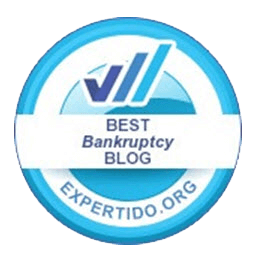If you’re considering bankruptcy, your mortgage payments are often a significant concern, and questions about the potential of lowering mortgage payments are common. The good news is that, under some circumstances, it is possible to lower your mortgage payments, and an experienced South Carolina bankruptcy attorney can help.
Chapter 7 Bankruptcy
Chapter 7 bankruptcy discharges unsecured debt, such as:
- Medical bills
- Credit card debt
- Personal loans that are unsecured
- Payday loans
Chapter 7 bankruptcy can help you get out from under your mortgage, but only if you are willing to lose your home in the process. With a Chapter 7 bankruptcy, the only way to keep your home is to catch up with the back payments and to keep up with your mortgage obligations moving forward. If you’re behind on your mortgage and concerned about covering your mortgage payments, Chapter 13 bankruptcy is generally a better option.
Chapter 13 Bankruptcy
Chapter 13 bankruptcy represents a repayment plan that requires repaying either all of, or a portion of, the debt included. Many homeowners who are in jeopardy of foreclosure seek Chapter 13 bankruptcy to save their homes. While bankruptcy can’t discharge secured debt, and your mortgage is a prime example of a secured debt, there are mechanisms in place to bring you current and, in some cases, may help you reduce your mortgage payments.
Mortgage Modification
Once you initiate the Chapter 13 bankruptcy process, it triggers an automatic stay, which means that your mortgage provider will be barred from initiating foreclosure or must halt the foreclosure process while your bankruptcy is pending – or must file a successful motion to lift the automatic stay. This puts you in an excellent position to negotiate better terms, which can translate to a lowered interest rate or to an extended term, and both can lower your mortgage payments.
Lien Stripping
Your mortgage provider has a lien on your property that affords them a legal claim if you fail to keep up with your payment requirements. When you take on a mortgage, you are party to a voluntary lien that supports the foreclosure process in the event you don’t hold up your end of the bargain.
Chapter 13 bankruptcy has lien-stripping options. For example, if you owe more than your home is worth and have a second mortgage, such as a home equity loan, it can be converted to unsecured debt by the bankruptcy court. This is referred to as stripping the loan, and once your Chapter 13 repayment plan is successfully completed – generally in three to five years – it can be discharged along with your other unsecured debts.
An Experienced South Carolina Bankruptcy Attorney Can Help
The practiced South Carolina bankruptcy attorneys at Reed Law Firm understand your need to reduce your mortgage payments and have the experience and legal skills to help make that happen. Bankruptcy is a complex legal matter, but the results can help resolve your financial stressors and embrace a fresh start. To learn more about what we can do to help you, please don’t put off contacting or calling us at 803-855-1774 in Columbia, South Carolina, or at 843-418-9004 in Florence, South Carolina, today.


